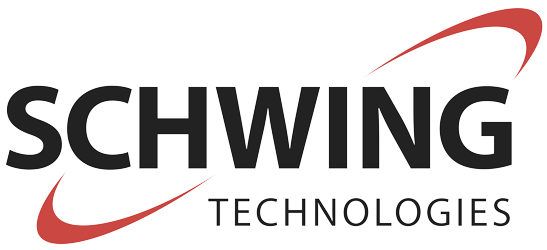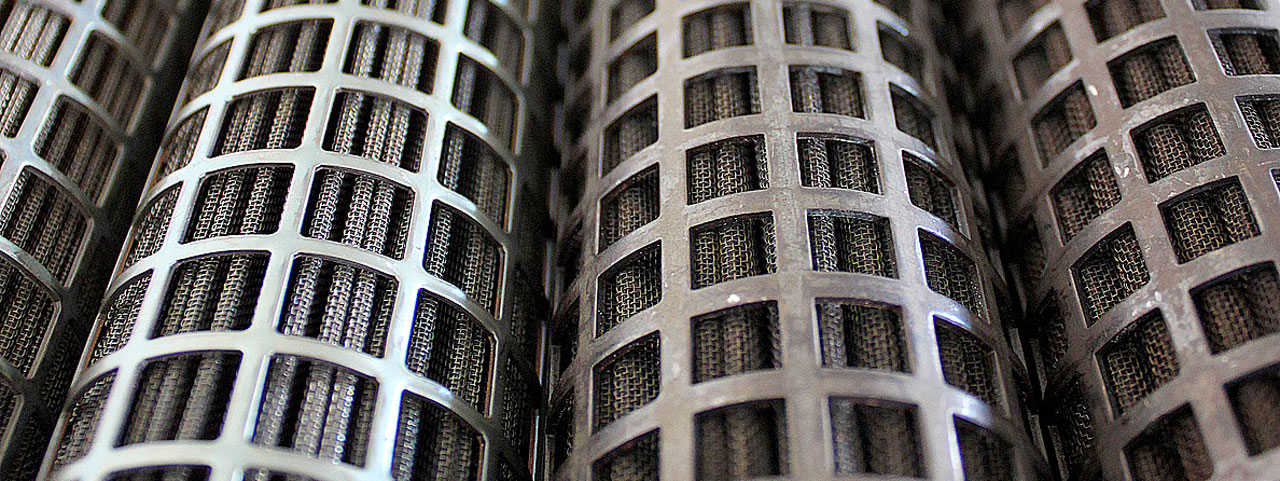Systems from Schwing Technologies clean filter discs and filter stacks quickly, cost-effectively, gently and in an environmentally friendly manner
When it comes to packaging, the food industry relies on BOPET films. In the manufacturing process, the thin films are stretched biaxially, i.e. in both directions, and then fixed at high temperature. On one hand, this makes them extremely light and transparent. At the same time, they are very stable, resistant to tension and tearing, and offer impressive aroma density. These are all important characteristics for the food packaging industry. In film extrusion, ever finer filter discs are used for this purpose, above all to ensure the quality of the plastic melt. These filter discs consist of a large number of extremely thin braids and metal fiber fleeces. It is obvious that they are becoming increasingly expensive to manufacture. Today, such a filter disc costs around 300 to 600 US dollars. Whereas in the past they were regularly exchanged and replaced, the economically and ecologically motivated trend today is toward filter cleaning and multiple use.
Reduced cleaning costs and longer filter service life
For cost-effective, environmentally friendly and, above all, gentle cleaning of these sensitive filter discs, Schwing Technologies offers their special vacuum pyrolysis technology followed by high-pressure water and ultrasonic cleaner. All layers and interstices of the filter discs, no matter how fine, are cleaned in this way without leaving any residues. Customers thus benefit not only from the longer service life of their filter discs while maintaining the same filter quality, but also from reduced cleaning costs compared with other methods. Depending on the adhering polymer, filter discs can be cleaned up to 60 times without any problems using Schwing’s cleaning technologies and quickly returned to the production process.
Safe filter cleaning through vacuum pyrolysis
The thermal cleaning workflow in Schwing’s VacuClean vacuum pyrolysis system, typically starts with melting off the adhering polymer. For this purpose, filter stacks are fed into the cleaning system in an assembled state. The adhering BOPET first melts off gently under vacuum and is heated up to approimately 450 °C in a second cleaning phase. In the fully automated and digitally documented pyrolysis process, the BOPET is then decomposed. A sophisticated sensor system controls the cleaning process so that excess temperatures cannot occur at any time. In the next step, the filter stacks are dismantled, broken down into the individual filter discs, subjected to vacuum pyrolysis again and oxidized with the successive addition of oxygen.
Precise post-treatment with high-pressure water and ultrasound
Although all organic contaminants have been removed thermally beforehand, inorganic residues may remain in the filter discs. These are then removed in a coordinated post-treatment process. For this purpose, Schwing offers tailor-made post-treatment processes for the sensitive filter discs. High-pressure water units are suitable for removing further residues. A pulsating backwash system ensures optimum cleaning results with wave- and pressure-type treatment. Here, inorganic residues are removed from the inside and outside. The last remaining residual contaminants, which are mainly found in areas that are difficult to access, are finally removed in the ultrasonic bath to achieve maximum cleaning results even in the deepest filter levels.
Cleaning service in Germany and worldwide distribution
Schwing sells its environmentally friendly and energy-efficient technology solutions and systems all over the world. In Germany, however, thermal cleaning is also offered as a service and Schwing invites interested parties and customers to test the cleaning results at the company headquarters in Neukirchen-Vluyn. In doing so, the equipment manufacturer is constantly developing the optimum efficiency of its systems and adapting the cleaning processes to innovative material mixtures and new filter designs at an early stage.
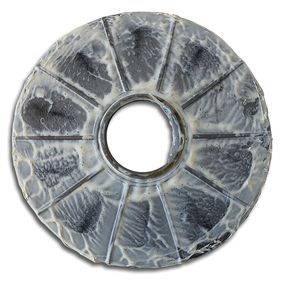
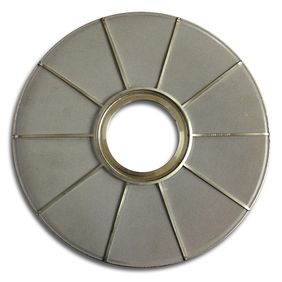
Filter disks before and after cleaning with vacuum pyrolysis, high-pressure water and ultrasound
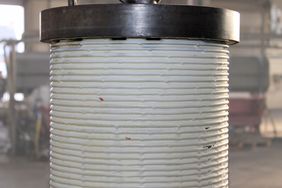
The thermal vacuum cleaning process first starts by melting off the adhering polymer from a filter stack in the assembled state. In a second step, the filter bundle is disassembled, broken down into individual discs and again subjected to vacuum pyrolysis. Precise post-treatment is carried out with high-pressure water and ultrasound
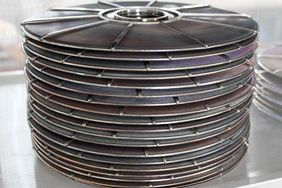
The thermal vacuum cleaning process first starts by melting off the adhering polymer from a filter stack in the assembled state. In a second step, the filter bundle is disassembled, broken down into individual discs and again subjected to vacuum pyrolysis. Precise post-treatment is carried out with high-pressure water and ultrasound
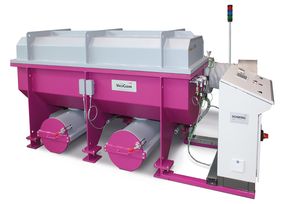
The environmentally friendly vacuum pyrolysis technology of Schwing Technologies’ VacuClean systems cleans BOPET-contaminated filter discs and filter stacks gently, safely and quickly
